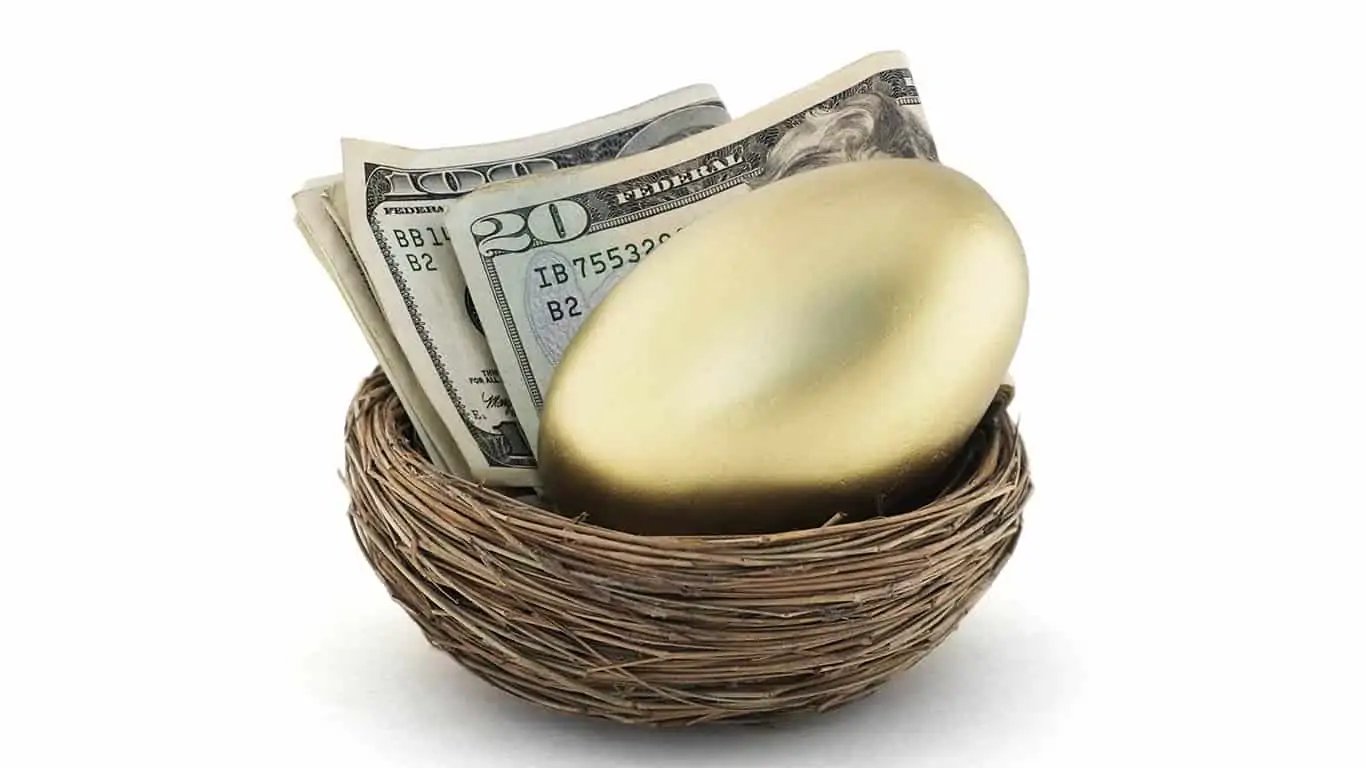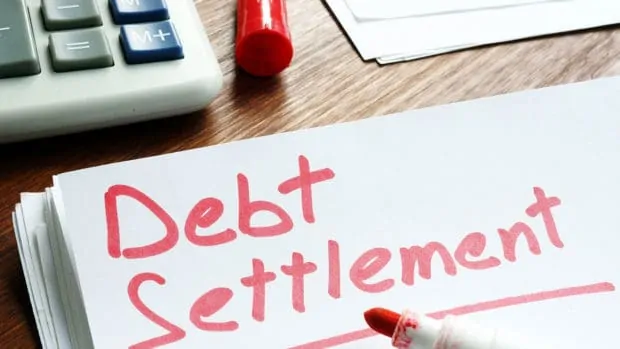When facing the challenge of managing debt, you find yourself weighing various options to regain financial stability. One such consideration is whether to utilize investments to alleviate debt burdens. This pivotal decision requires a thoughtful analysis of both short-term financial needs and long-term investment goals. Tapping into investments may offer a temporary solution to reduce debt obligations. It also warrants careful consideration of potential consequences and implications for future financial health. Exploring the intricacies of using investments to pay off debt can provide clarity and empowerment. Allowing you to make informed decisions tailored to your unique circumstances and aspirations.
Understanding the Dilemma
In your life, debt looms over your financial stability. From credit card bills to student loans, mortgages to car payments, debt takes many forms, each with its own trials and consequences. As you wrestle with the weight of debt, the temptation to use your assets to ease this burden grows stronger, offering hope for freedom and relief.
Paying off debt is crucial for achieving financial freedom and reducing financial stress. Here’s why prioritizing debt repayment might be a good idea:
- Interest Costs: Debt often comes with interest charges, which can accumulate over time and cost you more in the long run.
- Financial Freedom: Eliminating debt can free up your cash flow and give you more flexibility in your budget.
- Improved Credit Score: Paying off debt can improve your credit score, making it easier to qualify for loans and lower interest rates in the future.
- Peace of Mind: Being debt-free can provide a sense of security and peace of mind, allowing you to focus on other financial goals.
Investing can potentially help your money grow over time through various avenues like stocks, bonds, mutual funds, or real estate. Consider these key points about investing:
- Potential Growth: Investing can offer the opportunity for your money to grow faster than it would sitting in a savings account.
- Diversification: Investing in different assets can help spread out your risk and protect your money from market fluctuations.
- Long-Term Goals: Investing is often a long-term strategy, ideal for saving for retirement, education, or other major life goals.
- Compound Interest: The longer your money stays invested, the more it can benefit from compound interest, which can accelerate your wealth accumulation over time.
Strategic investments aligned with financial goals can yield substantial returns over time, fostering financial independence and retirement security.
Should I Use My Investments to Pay Off Debt?
Out of every 5 Americans, about 3 of them (which is 61%) have money they owe on their credit cards. On average, each person owes around $5,875. Additionally, about 23% of people say they end up owing even more money on their credit cards every month. Approximately 14% of people admitted that they forgot to make a payment on their credit card bills in 2023. In contrast, almost half of households, which is 46%, have some money saved up in retirement accounts. About 52% of Americans have life insurance to help protect them and their families. In 2022, around 58% of households in the United States owned stocks.
If you’re lucky enough to have any money invested, it might be tempting. Does this sound familiar? Should you sell stock to pay off debt? or do you need your 401k money now? If budgeting and side gigs aren’t getting your debt down, you may feel a sense of desperation. If you’re wondering whether it’s a good idea to use the money you’ve invested to pay off your debts, you’re not alone.
Cashing Out Investments
Lots of people think about this when they’re trying to manage their money better. Let’s take a closer look at your options. There are several investment products that you can consider cashing in to pay off debt. Depending on your financial situation, investment goals, and risk tolerance, here are some options:
- Savings Accounts and CDs offer liquidity and stability for short-term needs, despite lower returns.
- Bonds provide fixed-income securities but require consideration of market conditions and potential gains or losses.
- Stocks offer capital appreciation but involve market volatility, transaction costs, and tax implications when sold.
- Mutual Funds and ETFs pool investments and can be sold, considering redemption fees, taxes, and market risks.
- Annuities offer regular income but may have surrender charges and tax consequences.
- Cash Value Life Insurance can be borrowed against, but consider the impact on death benefits and taxes.
- Retirement Accounts should be a last resort due to penalties and impact on savings.
Investing should only be considered after you are debt-free and have an emergency fund. Before cashing in, consider costs, risks, and long-term effects. Anything that is a Non-Retirement fund should be divested first. Consult a financial advisor for personalized guidance.
Don’t sacrifice your future. No matter what kind of debt you have, Debt.com can help you solve it.
Tapping Into Your Home Equity
Using your home’s value to pay off debts is a choice for homeowners. Home equity means the difference between your home’s value and what you owe on your mortgage. Here’s how you can use home equity to pay off debts:
- Home Equity Loan (HEL): A home equity loan lets you borrow a lump sum using your home as collateral. The loan usually has a fixed interest rate and a set repayment term. You can use the money to pay off high-interest debts, like credit cards or personal loans. Remember, not paying back a home equity loan could mean losing your home.
- Home Equity Line of Credit (HELOC): A HELOC is like a credit card that uses your home’s equity as a limit. You can borrow and repay during a set time, usually 5 to 10 years. Interest rates on HELOCs can change, so watch out for increases.
- Cash-Out Refinance: With a cash-out refinance, you replace your old mortgage with a new, higher one. This lets you get some of your home’s equity as a lump sum. You can use the money to pay off debts or make home improvements. But remember, your new mortgage might have higher monthly payments and a longer repayment time.
Thinking About Selling Your Home
Before selling your home to pay debts, look at your finances. Selling your home is a big choice. Here are some things to think about:
- Total Debt: Add up what you owe, like your mortgage, credit cards, and other loans.
- Home Value: Find out how much your home is worth and subtract what you owe on your mortgage.
- Costs of Selling: Think about how much it costs to sell your home, like agent fees and taxes.
Why Selling Could Be Good
- Paying Off Debts: Selling your home gives you a lot of money to pay off what you owe.
- Starting Fresh: Paying off debts means you can start over without a mortgage.
- Avoiding Foreclosure: If you can’t pay your mortgage, selling your home can keep the bank from taking it.
Why Selling Could Be Bad
- Losing Your Home: Selling means you have to move and find a new place to live.
- Market Changes: You might not sell your home fast or for the price you want.
- Emotional Impact: Selling can be hard if you’re attached to your home or lived there a long time.
Things to Think About
Before using your home equity, think about the costs and risks. Home equity loans and HELOCs have fees and other costs. Not paying back what you owe could mean losing your home. Check your debt’s interest rates and terms against home equity options. Talk to a financial advisor or mortgage pro for help deciding. Using home equity can help pay off debts, lower monthly payments, and make your finances simpler. But be careful and know what it means before using your home’s value.
Pros and Cons of Using Investments to Pay Off Debt
Before you start using your assets to tackle debt, it’s important to weigh the pros and cons. Selling assets can give you quick access to funds, helping you pay off debt and regain financial stability. It also reduces the burden of high-interest payments, paving the way for long-term stability.
However, selling assets has downsides. It can weaken your financial safety net, making you vulnerable to unexpected expenses. Plus, it might lead to tax liabilities and penalties, lowering your assets’ overall value and hindering future financial growth.
It’s crucial to analyze your financial situation thoroughly, considering the pros and cons of each option. Aim for a balanced approach that addresses immediate needs while safeguarding future opportunities.
Using investments to clear debt can be a smart move, but it requires careful thought. Here’s a breakdown of the potential benefits and considerations:
Benefits of cashing out investments
- Saving on Interest: Paying off high-interest debt with investment funds can save you money in the long term. If your debt’s interest rate is higher than your investment returns, using the funds to pay off debt can lead to significant interest savings over time.
- Reducing Debt: Clearing debt can give you financial freedom and lessen financial stress. By paying off debt, you free up future income that would have gone toward debt payments, allowing you to use those funds for other financial goals or investments.
- Improving Credit Score: Paying off debt can boost your credit score by lowering your overall debt-to-income ratio and showing responsible financial management. A higher credit score can lead to better loan terms and lower interest rates later on.
Considerations for cashing out
- Investment Performance: Before liquidating investments, assess their performance and potential returns. If your investments outperform your debt’s interest rate, keeping them invested might be more beneficial.
- Tax Implications: Selling investments could trigger capital gains taxes or other tax consequences. Consider the tax implications before liquidating investments.
- Emergency Fund: Maintain an emergency fund to cover unforeseen expenses or financial emergencies. Using all your investment funds to pay off debt without an emergency fund could lead to financial hardship if unexpected expenses arise.
- Diversification: Selling investments to pay off debt may reduce portfolio diversification and increase risk. Evaluate your investment portfolio’s diversification and the impact of selling specific assets.
Using investments to clear debt can be a wise financial move, especially with high-interest debt or excess funds earning low returns. However, carefully weigh the benefits and considerations and consider seeking advice from a financial advisor to make informed decisions aligned with your financial situation and goals.
Trade your debt for peace of mind! Let’s stock up on solutions together. Talk to a debt relief specialist to find the best way to pay off credit card debt.
Costs vs Earnings: Pay Off Debt or Invest
The decision to use investments to pay off debt hinges on a multitude of factors, including interest rates, investment returns, risk tolerance, and financial goals. While reducing debt can alleviate financial burdens and promote peace of mind, liquidating investments may impede long-term wealth accumulation and financial growth.
Interest rates represent the cost of borrowing money or the return earned on invested funds. Here’s a breakdown of how interest rates function in terms of cost and earnings:
Cost of Borrowing
- When you borrow money from a lender, such as through a loan or a credit card, you are typically required to pay back the borrowed amount plus interest over a specified period. The interest rate represents the cost of borrowing funds from the lender. It is usually expressed as a percentage of the principal amount borrowed. Borrowers pay interest to compensate the lender for the risk they undertake by lending money and for forgoing the opportunity to use that money elsewhere during the loan period. The interest rate on loans can be fixed, meaning it remains constant throughout the loan term, or variable, meaning it can change based on fluctuations in market interest rates.
Earnings on Investments:
In contrast, those who extend loans or invest capital can garner interest on those investments. As you deposit funds into a savings account, certificate of deposit (CD), or other interest-generating accounts, the financial institution compensates you with interest on your deposited funds. Likewise, when you engage in bonds, money market funds, or other interest-accruing securities, you receive interest payments from the issuer of those securities as recompense for lending them your capital. The interest accrued on investments contributes to the overall investment yield and aids individuals in expanding their savings and attaining financial objectives. Interest rates serve a dual purpose in the financial domain. They symbolize the expense borrowers assume when borrowing funds and the gains investors accrue on their invested capital. Understanding interest rates proves pivotal for borrowers and investors alike, as they affect the affordability of loans and the returns on investments, shaping financial decisions and tactics.
ARP vs APY
When considering whether to pay off debt with investments, understanding the difference between APR (Annual Percentage Rate) and APY (Annual Percentage Yield) is crucial. Here are some key points to consider regarding APR vs. APY:
APR (Annual Percentage Rate):
- APR represents the annualized cost of borrowing money, including interest rates and certain fees, expressed as a percentage. It is commonly used for loans, credit cards, and other forms of debt.
- APR does not take compounding into account. It reflects the simple interest rate charged on the outstanding balance of a loan or credit card.
- When comparing different debt obligations, such as credit cards or loans, APR helps borrowers assess the cost of borrowing and make informed decisions about managing their debt.
APY (Annual Percentage Yield):
- APY represents the annualized rate of return earned on an investment, taking into account compound interest or investment growth over time, expressed as a percentage.
- APY reflects the actual earnings potential of an investment, considering the effects of compounding, such as reinvested interest or dividends.
- APY is commonly used for savings accounts, certificates of deposit (CDs), and other interest-bearing investments to help investors evaluate the potential returns on their savings and investments.
Factors to Consider
Deciding whether to invest your money, pay off debt, or use your investments to pay off debt is a strategic financial decision. It requires careful consideration of various factors:
- Interest Rates: Compare the interest rates on your debt with the expected returns on your investments. If the interest rate on your debt is higher than the potential returns on your investments, it may be financially advantageous to prioritize paying off the debt.
- Risk Tolerance: Consider your risk tolerance and investment strategy. Paying off debt provides a guaranteed return equivalent to the interest saved, whereas investments carry inherent risks, and returns are not guaranteed. Evaluate the risk-reward trade-off between paying off debt and investing.
- Investment Time Horizon: Assess your investment time horizon and financial goals. If your investments have the potential to earn higher returns over the long term compared to the interest rate on your debt, it may be more beneficial to keep your investments intact and continue making regular debt payments.
- Tax Implications: Evaluate the tax implications of liquidating investments to pay off debt. Selling investments may trigger capital gains taxes or other tax consequences. Consider whether the tax benefits of paying off debt outweigh the potential investment returns.
- Emergency Fund: Ensure you have an adequate emergency fund in place before using investments to pay off debt. Having liquid assets readily available for unexpected expenses can provide financial security and prevent the need to incur additional debt in the future.
- Diversification: Consider the diversification of your investment portfolio. Selling off investments to pay off debt may impact the diversification of your portfolio and expose you to concentration risk. Evaluate the potential impact on your overall investment strategy.
- Opportunity Cost: Assess the opportunity cost of using funds to pay off debt versus investing for future goals, such as retirement or education savings. Consider the long-term implications of both scenarios and prioritize based on your financial objectives.
- Psychological Benefits: You may experience psychological benefits from paying off debt, such as reduced financial stress and increased peace of mind. Consider the non-financial factors when making decisions about debt repayment and investments.
When deciding whether to pay off debt with investments, carefully analyze the interest rates, time horizon, risk tolerance, and tax implications associated with both your debt and investments. Consider consulting with a financial advisor to develop a personalized strategy aligned with your financial goals and circumstances. Using investments to pay off debt can be a viable strategy under certain circumstances, but it’s essential to weigh the potential benefits and risks carefully. Consider consulting with a financial advisor to develop a personalized strategy aligned with your financial goals, risk tolerance, and overall financial situation.
FAQs on Dealing with Debt and Investing:
Yes, prioritizing debt repayment, especially high-interest debt, can save you money in the long run and provide financial freedom sooner. But, you need to take your financial goals into account.
Read More Should I Pay Off Debt or Invest in My Retirement?
Evaluate the interest rates on your debt versus the potential returns on investments. Generally, if the interest rate on your debt is higher than the expected investment returns, prioritizing debt repayment may be more beneficial.
Read More Should I Invest or Pay Off Debt?
Yes, it’s possible to strike a balance between investing and debt repayment. Consider allocating a portion of your income towards both goals, focusing on high-interest debt while also contributing to investment accounts.
With low-interest debt, such as a mortgage or student loans, it may be advantageous to invest excess funds rather than aggressively paying off debt. However, consider factors like risk tolerance, investment opportunities, and personal financial goals.
Using investments to pay off debt may deplete your investment portfolio, potentially jeopardizing your long-term financial goals and retirement savings.
Yes, selling investments may trigger capital gains taxes or other tax liabilities depending on the type of investment accounts and applicable tax laws.
Evaluate your financial goals, investment strategy, risk tolerance, and overall financial situation to determine the most appropriate course of action.
Explore alternative debt repayment strategies, budgeting techniques, and income-generating opportunities to minimize the need to liquidate investments.
Focus on maintaining a balanced approach to debt management, prioritizing high-interest debt repayment while continuing to invest for long-term financial growth.
Consider consulting with a financial advisor or utilizing reputable financial planning resources to gain personalized insights and guidance tailored to your specific financial situation.
Summary
The decision to invest or pay off debt is nuanced and depends on your circumstances, financial goals, and risk tolerance. While investing offers the potential for wealth accumulation, prioritizing debt repayment can provide immediate financial relief and long-term benefits. Ultimately, striking a balance between investing and debt management is key to achieving financial stability and realizing your financial aspirations.
By understanding the intricacies of debt management and investment strategies, you can make informed decisions that align with their unique financial journeys. Remember, financial well-being is a journey, and thoughtful planning and informed choices pave the way to a secure financial future.
Navigating the balance between investments and debt repayment requires careful consideration and deliberation. While using investments to pay off debt may seem like a viable solution, it should be approached with caution and considered only after exploring other alternatives. Your financial well-being hinges on making informed decisions that align with your long-term goals and aspirations. Remember, seeking professional advice and thoroughly assessing your options will empower you to navigate challenges and achieve financial stability. By prioritizing prudence and foresight, you can chart a course toward a brighter financial future.






